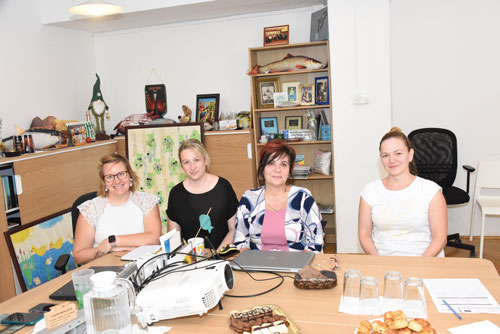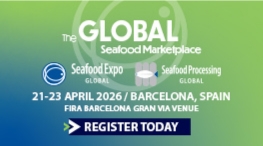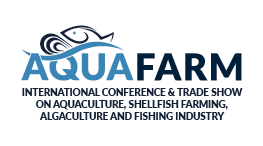This article was featured in Eurofish Magazine 5 2025.
The Aquaculture and Fisheries Analysis Department of the Hungarian Institute of Agricultural Economics (AKI) plays a central role in the collection, evaluation, and dissemination of fisheries and aquaculture data in Hungary.
The Aquaculture and Fisheries Analysis Department is both a professional research unit and a service provider to policymakers, stakeholders, and international organisations. By combining statistical rigour, economic analysis, and sectoral knowledge, the department has become the reference body for fisheries-related data and analysis in Hungary.
A department with national and international responsibilities
The Hungarian Institute of Agricultural Economics (AKI) itself has been a cornerstone of Hungarian agricultural policy research for more than seventy years. Its mission is to provide the knowledge base that underpins food economy policy, including rural development, risk management, and market analysis. Within this framework, the Aquaculture and Fisheries Analysis Department is a relatively new but essential unit, created to bring together professional expertise in aquaculture and fisheries. Since 2024, the unit has been coordinated by Béla Urbányi, an agricultural engineer and the first fisheries specialist to become a member of the Hungarian Academy of Sciences. The department’s mandate is both national and European. It supports Hungary in meeting its obligations under the European Union’s Common Fisheries Policy (CFP) by managing the Data Collection Framework (DCF). At the same time, it provides independent analyses for Hungarian policymakers, fisheries producers, and consumer organisations. Its work bridges statistical reporting, sectoral evaluation, and long-term strategic planning.

Pond farms contribute to biodiversity, water retention, and flood control in addition to producing fish.
Establishing the value of these ecosystem services is one of the tasks the Aquaculture and
Fisheries Analysis Department is working on.
The department is the national authority responsible for fisheries data collection under the DCF. The latest project, known as DCF3, runs from January 2024 to December 2029. It is funded entirely by a non-refundable grant of 1.39 billion forints (EUR 3.5m) under the MAHOP Plus operational programme. The project’s aim is to ensure that Hungary collects, stores, and shares fisheries and aquaculture data in line with EU and national legislation. The framework covers environmental, economic, and social dimensions. Data are gathered on aquaculture production volumes, market prices, processing, and trade. Collection extends across the entire value chain, from farm-gate prices to retail shelf prices, ensuring that trends in production costs, consumer preferences, and sectoral sustainability can be monitored. The department is also responsible for developing new methodologies, securing safe data storage, and ensuring that aggregated, non-confidential data are made publicly accessible.
Data from different sources deliver a comprehensive overview of the sector
• The Agricultural Statistical Information System (ASIR), which provides fish production and cross-sectoral agricultural data.
• The Market Price Information System (PÁIR), which tracks prices of fish products at farm, wholesale, and consumer levels.
Fish prices are collected from retail chains, markets, and specialised outlets in multiple Hungarian cities. Monthly monitoring distinguishes between live, gutted, and filleted fish. These data reveal both the seasonal role of species such as common carp – traditionally consumed at Easter and Christmas – and the growing popularity of imported salmon and other marine fish, particularly among younger consumers. The department also analyses apparent consumption, the calculation methodology used is aligned with that applied by EU member states, thereby ensuring compatibility and facilitating the comparability of data across member states. Around 80% of fish consumed in Hungary is imported, with salmon and processed marine species dominating. At the same time, Hungarian carp remains important both domestically and for export to neighbouring Romania.
Regular publications are an asset for policymakers
AKI has a strong publication record, with the department contributing annual and quarterly reports specific to fisheries. These include the annual harvest report, semi-annual reports on foreign trade, and a quarterly price report. In addition, the department produces a yearly comprehensive analysis of the Hungarian fisheries sector, covering production volumes, market processes, external trade, consumption trends, sectoral value and general financial situation. This synthesis provides the evidence base for both national policy and Hungary’s input into EU fisheries discussions. Beyond official reports, the department contributes to Hungarian agriculture journals, sectoral newsletters, and Eurofish magazine. It provides country profiles, market analyses, and news items to international platforms, ensuring that Hungarian aquaculture and fisheries are visible within the European professional community. While the department carries out the bulk of fisheries data collection, it also collaborates with external experts when needed. This may involve cooperation with Hungarian universities, although recent changes in university governance and disputes between the EU and Hungarian government have limited the ability to fund certain institutions. The department also works closely with professional associations such as MOHOSZ (Hungarian Angling Association) and MA-HAL (Hungarian Aquaculture and Fisheries Inter-branch Organisation) regarding fish price agreements and market developments.
Internationally, the department provides data to the European Commission, Eurofish, FEAP and FAO, ensuring comparability and transparency of Hungarian fisheries statistics. Its analyses were instrumental in convincing the Hungarian government to reduce value-added tax on fish products from 27% to 5%, a measure that improved sector transparency and reduced incentives for informal trade. Beyond statistical reporting, the department has begun to explore new research areas. One of the most promising is the economic valuation of ecosystem services linked to aquaculture. Pilot studies are underway to quantify the environmental benefits of pond systems, including biodiversity support and water management functions. Alexandra Ferencz-Havel, one of the department’s younger staff members, is addressing this topic, which will provide new insights into the sustainability of Hungarian aquaculture. The department also evaluates the innovation potential of aquaculture production, the experiences of beneficiaries of operational programmes, and the profitability of both traditional pond systems and intensive recirculating (RAS) and flow-through aquaculture systems. These analyses feed into the implementation of the National Aquaculture Strategy and provide guidance for investment priorities.
Team members specialise in different disciplines
The department is led by Béla Urbányi, supported by colleagues including Mónika Bojtárné Lukácsik, Ágnes Irma György, Zoltan Bokor, Alexandra Ferencz-Havel, Krisztián Szabó, Andrea Rózsa, Felföldi-Varga Viktória who bring expertise in economics, finance, statistics, communication, and ecology. The department works in close cooperation with Gabriella Kiss from the Agricultural Statistics Department of AKI, responsible for Hungarian fisheries statistical data collection. The team reflects AKI’s broader tradition of interdisciplinary collaboration, with backgrounds ranging from agricultural engineering to nature conservation. While the core team is small, it coordinates a broad network of data providers, from fish farms to market monitors. It also interacts regularly with policymakers, ensuring that analyses are aligned with decision-making needs. The department faces several challenges. Fish consumption in Hungary remains low by European standards, and strongly seasonal. Younger consumers often prefer imported products over domestic carp, making market development for local pond aquaculture difficult. Price competition from cheap imports, such as occasional low-priced salmon, puts further pressure on Hungarian producers.
At the same time, opportunities exist. The pandemic years demonstrated that consumer demand for fish can rise when health consciousness increases. Ms. Bojtárné Lukácsik says that during the pandemic consumers, the elderly in particular, turned to fish in a bid to live healthier. Home deliveries strengthened as hotels, restaurants and catering establishments closed down, but the data did not show a marked rise in fish prices, perhaps partly because Hungarian consumers are price conscious. The fish price monitoring provided the data that underpinned the decision to decrease VAT on fish, from 27% to 5%, says Ms Bojtárné Lukácsik. The VAT reduction has made the sector more transparent, and the growth of online retail and delivery services has created new channels for reaching consumers. By expanding data collection to cover processing and shelf prices, the department will provide a clearer picture of competitiveness and value creation along the fish supply chain. Looking ahead, the department aims to deepen its analysis of sustainability, integrate ecosystem service valuation into mainstream statistics, and strengthen public access to aggregated data through its online platform. These efforts will support both Hungarian aquaculture producers and the EU’s broader objectives of sustainable food systems.
A vital task that benefits all stakeholders
In an industry marked by tradition, seasonal consumption, and strong international competition, the department provides the evidence base needed to understand developments in the sector and make forecasts about its direction. Whether through monitoring carp prices at Christmas, quantifying the environmental benefits of ponds, or negotiating data standards with Brussels, the department ensures that a reliable picture of the state of Hungarian aquaculture and fisheries is no more than a few mouse clicks away.





